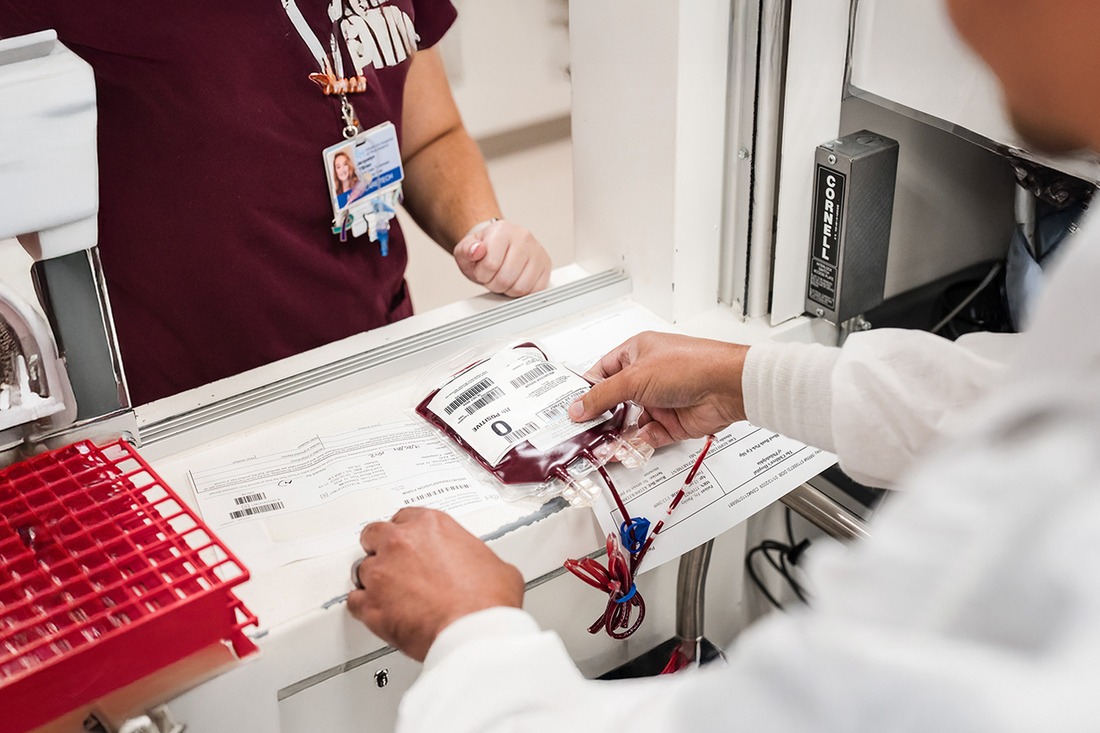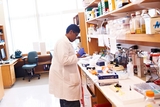Division of Transfusion Medicine

The Division of Transfusion Medicine at Children’s Hospital of Philadelphia consists of a Blood Bank and Transfusion Service, Apheresis Service, Cell Based Therapy Laboratory, Tissue Bank, Surgical Satellite Facilities and the CHOP King of Prussia Blood Bank.
We receive blood products from the American Red Cross and sponsor multiple blood drives each year at our Main Hospital, the Roberts Pediatric Research Building and the Middleman Family Pavilion, CHOP’s King of Prussia Hospital. We perform more than 25,000 transfusions a year including red blood cell, platelets, fresh frozen plasma, cryoprecipitate, granulocytes and fresh whole blood.
Our diverse patient population consists of hematology and oncology patients including a robust and comprehensive sickle cell program, as well as surgical patients from a large cardiothoracic and craniofacial patient population. The Transfusion Service is also active in research, particularly in the areas of blood utilization, molecular approaches to blood product selection, and alloimmunization in patients with sickle cell disease. The Apheresis Service performs more than 1,000 procedures a year focused primarily on red blood cell exchange, plasma exchange, hematopoietic progenitor cell (HPC) and T-cell collections, and extracorporeal photopheresis.
The Cell Based Therapy Laboratory supports an active transplant service by processing, storing, and manipulating stem cells, as well as participating in translational research, such as CART-19 therapies and gene therapy protocols for hemoglobinopathies, which move research in this area forward.
The Division works closely with the Operating Room to support both an active tissue transplant service and to provide tissue and blood products at our satellite surgical facilities.
Lab locations
- CHOP-Philadelphia Campus Blood Bank - 5th Floor Main Hospital
- CHOP-King of Prussia Blood Bank- 2nd Floor
Lab hours
Both the Philadelphia and King of Prussia Blood Banks are operational 24/7. Complex transfusions and special testing are performed at the CHOP-Philadelphia Campus Hospital.
Donate Blood
Donating blood can save countless lives. Each donation has the potential to help trauma victims, surgery patients, individuals battling cancer, and those with chronic illnesses who rely on regular transfusions. Blood cannot be manufactured, so the healthcare system depends entirely on voluntary, unpaid donors to maintain a safe and steady supply.
Please consider donating blood. For more information or to schedule an appointment please visit: https://www.redcross.org/give-blood.html
We also offer “directed” and/or “autologous” donations through our blood supplier, the American Red Cross. Learn more about directed donations.
How we serve you
We are dedicated to providing safe and effective transfusion, apheresis and biotherapy services to meet a wide range of patient needs.

Meet the team
You may not see the entire transfusion medicine team, but they are hard at work supporting blood product needs and providing cutting-edge treatment for children in our care.